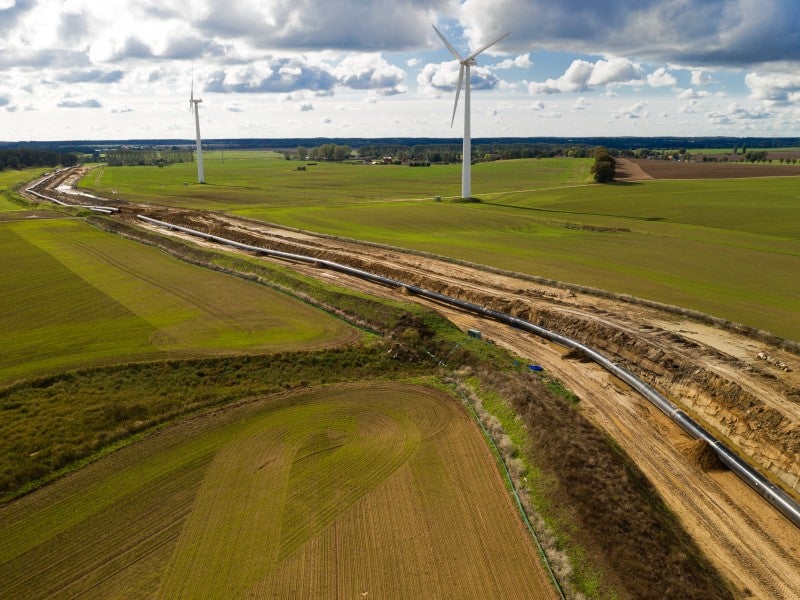Russia’s invasion of Ukraine has opened the world’s eyes to energy dependency as a geopolitical weapon.
In the first few weeks of the war, its effects spread quickly. Four of the world’s biggest fossil fuel companies promised to pull out of Russia, abandoning more than $20bn in assets. Germany, Russia’s biggest customer, stopped a ready-to-go pipeline that would have directly brought in Russian gas, and the US introduced sanctions on all Russian fossil fuels.
Now energy markets are in a deep crisis, as countries such as Germany, which receives 55% of its gas imports from Russia, struggle with energy insecurity. As of 17 June 2022, Russia is preventing countries from storing gas for the winter. As a result, global energy prices have spiked, and Europe and Asia have sought to diversify their energy sources away from Russia. They have also turned to mixed energy supply strategies and increased investment in renewable technology to reduce the cost of energy and provide security.
Even before the invasion of Ukraine, most countries have adopted mixed energy supply strategies to reach the EU target to be carbon neutral by 2050, with some developing their strategies around local resources or capabilities. For example, France has focused on its nuclear energy capabilities and the UK has developed its offshore wind and North Sea gas sources. However, fossil fuels still dominate the supply for some countries. The current geopolitical drive to be energy secure has pushed countries to source fossil fuels from alternative supplies of piped gas, liquefied natural gas (LNG), oil and coal. This provides a more immediate solution to the current energy crisis than developing renewable energy sources. An example of this came two weeks after Russia’s invasion, as Germany pledged to build two LNG terminals as part of a continental push to replace Russian gas with fossil fuels shipped from elsewhere. Therefore, while the war in Ukraine has encouraged economies to become more self-reliant and further promoted the transition to renewable energy, it has also caused a short-term rise in fossil fuel usage.
This delay in phasing out fossil fuels has caused a hindrance to plans by the EU and Intergovernmental Panel on Climate Change (IPCC) to be net-zero by 2050. In an attempt to meet these goals, attention has turned to carbon capture and storage (CCS). Developed in the 1970s, this technology removes carbon from the atmosphere after it is released, allowing the use of fossil fuels with a reduced impact on the climate. However, it has faced criticism over the safety and environmental impact of storing carbon and its cost.
See Also:
A GlobalData report from 2021 indicated that CCS was likely to grow even before the Russian invasion. Many major projects were planned beyond 2021, as the process of CCS has become more cost-effective, with economies of scale and technological development reducing the amount of energy required to capture and store carbon. Furthermore, in May of 2022, the Biden administration announced a $2.3bn investment into the development of CCS, reflecting how CCS is increasingly becoming a priority for policy. Therefore, while the war in Ukraine has delayed the phasing out of fossil fuels, it has given further impetus to CCS.
How well do you really know your competitors?
Access the most comprehensive Company Profiles on the market, powered by GlobalData. Save hours of research. Gain competitive edge.

Thank you!
Your download email will arrive shortly
Not ready to buy yet? Download a free sample
We are confident about the unique quality of our Company Profiles. However, we want you to make the most beneficial decision for your business, so we offer a free sample that you can download by submitting the below form
By GlobalDataIn the future, GlobalData expects a further increase in CCS use due to the current political climate. However, previous concerns over the use of this technology should not be ignored, and CCS should not be a primary solution to climate change. CCS should be used as a last resort to prevent irreversible climate change while countries diversify their energy dependence and prioritise renewable sources.










Related Company Profiles
CCS Inc.
Lang Kft
Intergovernmental Panel on Climate Change
IPCC LIMITED